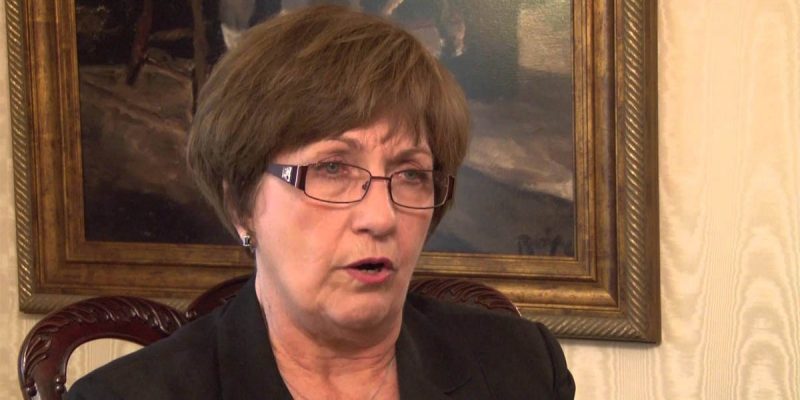As regular readers of this space know, when someone involved in Louisiana politics who I know in some personal way goes on to their reward, I write a few words about her. Unfortunately, Democrat former Gov. Kathleen Blanco now must make an appearance here for that reason.
All readers of this space may labor under the misimpression that I chat regularly with policy-makers, conservatives in particular, compiling terabytes worth of correspondence and hours of listening time for the National Security Administration (at least under Democrat presidents). In fact, my communications with such people are extremely modest. Just about all of the time that I devote to gathering information for my posts and columns comes from solitary research, not from commiserations with insiders.
And of the time spent communicating with policy-makers past and present, among those who have served as governor of the state, you might think I’ve spent the most time chatting with Republican former Gov. Bobby Jindal. I have had the pleasure of chatting with him in person a few times for a few minutes each, both before and during his governorship.
However, the governor I’ve spent the most time cumulative conversing with has been Blanco. This came courtesy of a call in 2010. I’m not sure any one thing prompted it, but out of the blue her assistant wrote me and asked if I would receive such a call. Of course I would, and did.
On that occasion, we spent an hour or so on a variety of subjects. But, I suspect her main reason was to probe my motivations and thinking about my pieces critical about her handling of the Hurricane Katrina disaster of 2005. I made it clear that I thought her inability to grasp the magnitude of the event led to decisions that later she tried to blame on others, mostly Republican politicians, and evaded responsibility for those choices (a subsequent summary is here).
She hadn’t shaken the conspiratorial air she had chosen to sense about this episode. In response to her inquiries, I told her nobody had communicated to me anything about this (curiously, she kept asking about my connection – none, as it is – to Karl Rove) and that I had drawn my conclusions from publicly available information. As I told her, I call them as I see them, and if my writing seemed harsh on the subject, it was from exasperation over the path she had chosen. Unmoved, she reiterated to me how she thought federal officials had done her wrong and for political reasons.
It seemed to me she actually believed that. This belief isn’t unusual when dealing with the political left: when confronted with factual empirical experience, backed by history, that demonstrates the universal inferiority of its issue preferences (because when you start with mistaken theory and misread assumptions about human beings, you won’t come up with the right answers), adherents build a conspiratorial superstructure that purports to explain why their policies appear to fail. The reflex to do so even carries over to largely nonpolitical/administrative competence issues, such as disaster response (even as the federal government and some of its officials itself didn’t distinguish themselves as well).
Advertisement
However, over the years I concluded that this probably wasn’t her first instinct. I’d like to think that she wouldn’t have adopted such a combative posture except that she was driven by political necessity, not even so much for reelection purposes as by the partisans and ideologues around her who gave political calculation such primacy. More than she inherently desired, I suspect she was channeled by those around her into applying to events a politicized prism, setting her on a course she couldn’t alter that ultimately ensured the end of her political career.
Since then, those individuals (save those who retired from public life) have continued in politics, parachuted into academia, or found new life in her ally Democrat Gov. John Bel Edwards’ administration. It seems unlikely that she could have won reelection even with a more conciliatory attitude given the widespread response and recovery difficulties and perceptions of these, but at least she wouldn’t have exited office projecting an image that seemed to belie her underlying self.
Interestingly, having her governorship flame out may have hastened prematurely the conservative governance of Jindal, with consequences beyond. Then, Louisiana’s political culture was more immature than now, with the scourge of liberal populism having stronger roots and personalism taking greater precedence over issues than it does today. A second Blanco Administration likely would have let the malaise caused by this heritage linger longer, making the clear policy break presented by Jindal sharper still, more comprehensive in application, and executed more extensively. With a public better primed for the evolution away from what has held the state back, the ghost of Louisiana’s past represented by Edwards likely wouldn’t have haunted the Governor’s Mansion for the foreseeable future.
Regardless, I have no doubt Blanco felt she did what she thought best for the state and tried to do so in a way that avoided self-puffery or self-enrichment, unlike some past state chief executives dead or alive.
Advertisement
Advertisement

